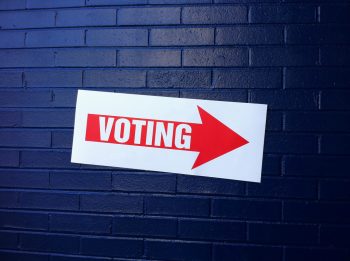Dutch Elections: The Wiv Referendum Posted by Karoly Molina on Mar 15, 2018 in Uncategorized
This month, the Dutch will be going to the polls once again to vote. Dutch voters will have several choices to make, one of which is the referendum over de wet op de inlichtingen- en veiligheidsdiensten 2017 or the law of the intelligence and security services 2017. This law is also know as Wiv 2017, aftapwet and sleepwet.
But what is this referendum really about?
Inlichtingen- en veiligheidsdiensten
The inlichtingen en veiligheidsdiensten is the equivalent of the American CIA. In the Netherlands, there are two different CIA’s: de Algemene Inlichtingen- en Veiligheidsdienst or AIVD and the Militaire Inlichtingen- en Veiligheidsdienst or MIVD. According to the Referendum Commissie, the purpose of these two departments is om de veiligheid en de democratische rechtsorde zo veel mogelijk te helpen beschermen. Daartoe verzamelen ze informatie over dreigingen (Referendum Commissie brochure about Wiv 2017).
The AIVD and the MIVD are responsible for maintaining the safety of the Netherlands and to protect us from any threat. This can include terror threats like those we have seen in Europe the last few years, as well as cyber attacks against our institutions and private companies. In order to ensure safety, the AIVD and the MIVD can search someone’s home or business, check people’s computers, have surveillance on people or even trace someone’s phone calls and internet activities.
Wiv 2002 and Wiv 2017
The AIVD and the MIVD were working with the Wiv 2002. The Wiv 2017 hopes to expand the surveillance possibilities. This include a broader surveillance on telephone and internet. The disadvantage is that this wider scope would give the AIVD and MIVD access to other persons’ information.
While the issue of privacy is probably of most concern, the Wiv 2017 has clear rules compared to the 2002 version. Some of these include the possibilities of hacking someone’s computer, DNA investigation, working with foreign intelligence agencies and tapping into information from journalists and between lawyers and their clients.
The following video explains a bit more about the Wiv 2017.
Referendum
There has been a debate about Wiv 2017 from people who are for and against it. The law is in place, but there were enough signatures to request a referendum. It must be noted that the referendum is not legally binding. The voters can say nee and the overheid can still keep Wiv 2017 in place.
Before you vote, make sure to do your homework! You can read more about Wiv 2017 in the Referendum Commissie website. You can also watch a very interesting debate about Wiv via this link.
What do you think about the law?

Build vocabulary, practice pronunciation, and more with Transparent Language Online. Available anytime, anywhere, on any device.




